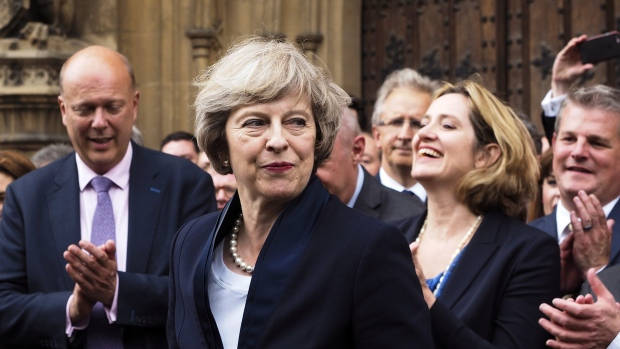
***Disclaimer: This is not a real news story and is purely for fictional purposes***
The world was shocked previously this week when Theresa May, the British Prime Minister, announced to the UK public and the world from outside No. 10 Downing Street that she would be running a referendum for re-entrance in to the European Union. ‘Bre-entry’, as it is being called, comes as a huge surprise, especially considering that May came into power strongly supporting the Brexit movement. The decision may come as a surprise, but the United Kingdom government has come under scrutiny for fears of what Brexit has to entail, and May has clearly buckled under the pressure, much to the dismay of her conservatory MP’s. The last few years for non-British residents in Britain has been a rollercoaster ride, with this recent announcement adding to the chaos, but now that a return is very possible, does everything just go back to ‘normal’ for non-British residents?
It is important to understand that the UK, before May’s recent announcement, was still in a transition period and had not actually left the EU, however, the EU residents, of which there are around 3 million living in the UK, who have had their bags packed ready to leave if need be, hiding French truffles in their underground basements or those who have been desperately looking for jobs in other European countries, may not need to worry as much if the UK are voted back in to the EU.
The most important change relates to jobs and how your visa/passport will affect your chances of getting one. For immigrants, Brexit meant that passports weren’t enough to validate your right for residency. In terms of Bre-entry, this factor will no longer be a hindrance. Nick Rollason, an immigration partner at London Law Firm Kingsley Napley, believes that, “A reversal of Brexit will mean that non-British residents will not have to apply for special proof documents to substantiate their residency rights – passports are again sufficient.”
The next change relates to public services, and in particular, healthcare. Before Brexit, The National Health Service (NHS) provided free, or nearly free healthcare to all EU citizens in the UK. Brexit then took away that service, but Bre-entry would subsequently allow free healthcare to all EU citizens again, regardless of whether they are British citizens or not.
The last important change that I will address refers to immigration – a highly debated topic after the confirmation of Brexit. Brexit meant that only those who had lived in the UK for five years or more i.e. have permanent residency, would be guaranteed the right to stay, while residency rights for those without permanent residency would be much more challenging to obtain. Chris Grayling, a senior minster on the leave side of the government, says that, “Bre-entry would re-instate the free movement of EU citizens in and out of the UK and remove the new rules of immigration of Brexit, such as the disallowance of family members overseas to visit permanent non-British residents in the UK.”
May’s decision to hold the referendum will remain a huge surprise for a long time, as it essentially translates to the prime minister admitting that Brexit was, in her opinion, a mistake. It will see many changes made in the conservatory party’s political objectives and agenda and inevitably, a substantial reshuffle of her MP’s. However, the changes aren’t only political but economic, environmental and of course, social. For the non-British UK residents, there is hope for you still. Bre-entry would see a significant reversal of many immigration, economic and service rules, meaning that those severely affected by Brexit would need not to worry over their future in the UK. Keep in mind however, that Bre-entry is entirely contingent on the referendum result which is yet to even take place so, make sure to get your vote in when the polls open!